A Few Minutes with MAVI
This is the first iteration of the A Few Minutes editorial interview series. Our inaugural guest, Carolina-born MAVI, said, "It's time for jazz."
This week, I’m launching a new feature for A Few Minutes, aptly titled after the newsletter itself. In this series, I’ll catch up with tastemakers and cultural shapers to explore how they spend their time—whether it's their routines, the books, shows, or experiences they're immersing themselves in, and how these influences shape their work.
I've been a magazine lover since I can remember and, more particularly, a whore for interviews. There are certain people whose lives and creative journeys deserve more attention. It’s those quieter moments when they’re crafting and refining their work, not just the highlight reel, that I want to focus on. This series is all about those moments of creation.
Our inaugural conversation is with MAVI, the Carolina-born rapper who lays it all bare in his lyrics. From his debut, Let The Sun Talk, to his most recent release, Shadowbox, MAVI is one of those artists who’s completely transparent—or at least I think—with no barriers between him, his process, his fans, or his thoughts. He’s brazen and thoughtful, whether on his X account or in his lyrics.
We caught up over a video call one Sunday afternoon after he wrapped up a leg of his Shadowbox World Tour in Europe. Throughout the interview, you'll get a glimpse of photos MAVI shared with me and our chat about everything from jazz and Gen Z to self-preservation and more.
Earlier this month, MAVI posted on X: "I predict my generation will return to jazz." The post sparked debates about contemporary jazz's vitality, with some arguing that Gen Z is already embracing it.
I opened our interview by asking where his thoughts originated.
MAVI: I’ve gotten back into reading, which I’ve been trying to do for a while. I read Cat’s Cradle by Kurt Vonnegut, and now I’m a little over halfway—probably 75%—through The Autobiography of Malcolm X. While on the road, I listen to a lot of music. I didn’t want to stop listening to music, but I also wanted to keep reading. So, I went on Twitter and asked everyone, “What are your favorite jazz albums?”
The ones I gravitated toward the most were Giant Steps by John Coltrane, Gene Ammons’ Makes It Happen, and Bobby Humphrey's Blacks and Blues. None of these albums exceed eight tracks; they’re about 35 minutes long. That format resonated with me.
When I think about my creative process, my last album was about 34 minutes long, and the one before was around 38 minutes long. That brevity reflects our attention-deficit generation. We need things to change and transform constantly.
Jazz albums from that era massage that part of my brain. I’ve always loved live instrumentation—I grew up playing in the band. Between that and reading books set in jazz's peak era, I started seeing how this cultural movement fits our current condition as Gen Z or Gen Alpha.
I’ve always felt that jazz, though often fast-paced and staccato in nature, has a grounding quality. Fresh off a short leg of European shows—he had just returned home from the airport before our interview—the artist, who released his third studio album, Shadowbox, back in August, is finding ways to slow down.
MAVI: I’m just trying to stay present and take everything in. On this tour, especially the Europe leg, I spent less time in each city compared to my last tour. Places like Dublin and Lisbon were my first time visiting, so I made a real effort to look around, take pictures, and be present.

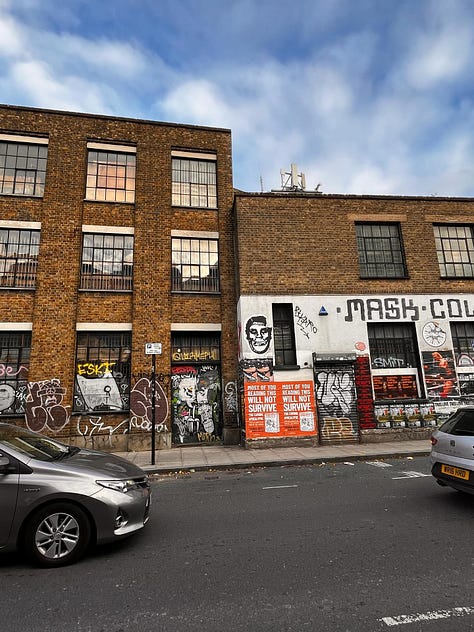
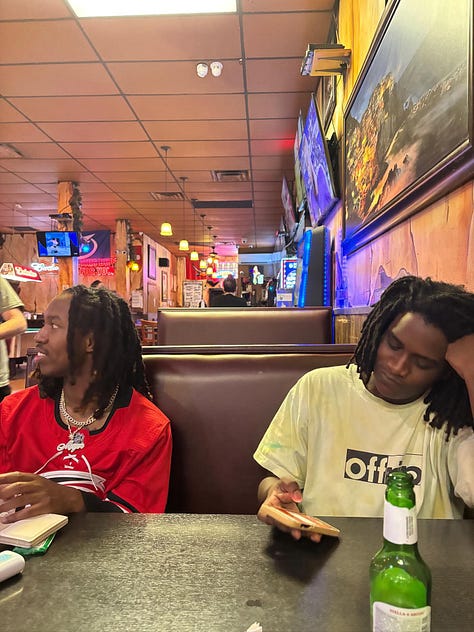
I’ve been returning to the basics—focusing less on working hard and more on creating space to think. That hard work is about building better habits and rituals, exercising, reading, staying sober, journaling, and being present with my friends. My frontal lobe just clicked in the past six months, like everything fell into place.
MAVI turned 25 in October and has been sober for a week. Here's how that week has been.
MAVI: Oh, I don’t even like being drunk that much. But now, I appreciate reading and listening to music differently. Before, I used substances to slow my brain down or wind down after a show. But now, I’m excited to get back to my book and music at the end of the night. I feel proud of that.
I used to take an edible before bed, too. Now, I am trying to gua sha, which MAVI calls "the little stone thing."
Our conversation drifted into reflections on the realities of aging, transitioning into our "higher selves," exploring new hobbies, and craving more stillness.
MAVI: At this age, we can’t rely on that illusion of invincibility from our teens or early twenties anymore. The stuff we do now—we have to answer for our habits, our consumption, and our indulgences.
Honestly, as a sensation seeker and dopamine addict, I’ve come to appreciate the sense of accomplishment that comes with my newer routines. The relaxation now feels genuine. It’s not like when you start eating healthy. If you’re a new vegan and stop eating Frosted Flakes, then switch to some Trader Joe’s brand cereal, it might be gross, but you convince yourself it’s good because it’s healthy.
This lifestyle actually feels delicious, and I’m happy about it.
With three studio albums and a relentless touring schedule, I wondered how MAVI balances staying “locked in,” as the kids say while embracing the fullness of youth.
MAVI: For me, those things don’t feel like conflicting forces because my job is, in a way, to be young and turnt—living in the moment and chasing the rush—but also to not mess up the bag. The things that feel exhilarating are also my sources of stability. So, it works twofold: I have to throw myself headfirst into music, performing, and that adrenaline-fueled part of my life to ground the more stable, mundane parts.
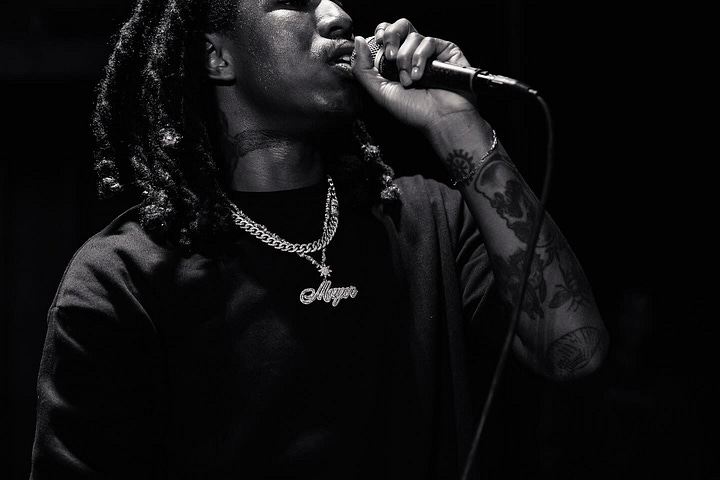
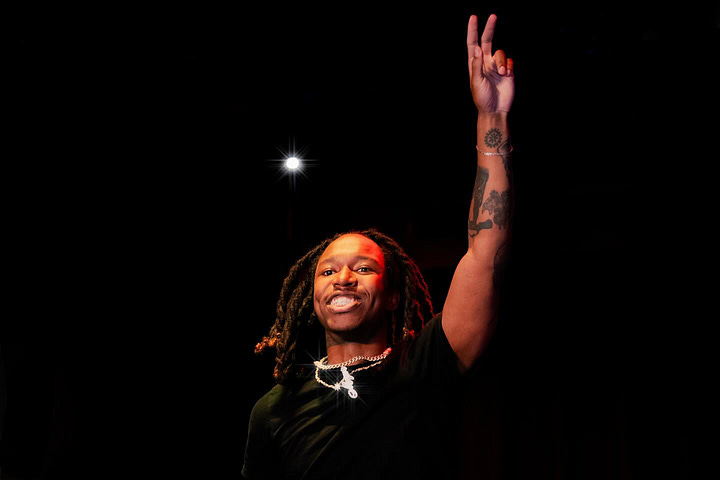
That’s a unique dynamic in my life. I’ve seen others my age, especially those in careers that don’t align with their passions, compartmentalize too much. It throws off how their lives function. They’ll work five days, 40 hours, and then blow off steam by getting blackout drunk on the weekend.
For me, the things that bring me joy and the things that bring me peace are the same. If I lean too far into life's unartistic, boring side, I mess up my art. But if I go too deep into self-indulgence, I mess up my ability to stay financially stable. So, for me, it’s all about finding that alignment.
It’s funny how work doesn’t always feel like work when it brings you joy. People will ask me, "Oh, what are you doing Sunday?" And I’ll tell them, "I’m writing my newsletter. Maybe we can hang out before noon or after six, but from noon to six, I’m locked in."
But it's deeply fulfilling for me and scratches the right part of my brain. If I didn’t do it, I wouldn’t have an outlet for all my thoughts, and I’d feel stir-crazy. I think it’s interesting because many creatives, especially Black creatives, are trying to build intentional lives that aren’t compartmentalized.
So, when you feel in alignment or like you’re being intentional, what are the pillars of that? How do you feel?
MAVI: I can write a good song when I’ve taken care of myself—when I have a new scent that excites me, when I’m wearing comfortable clothes, and when I’ve been a good son, brother, friend, and partner. When I’ve been accountable to the people I need to be accountable to, and when I’ve been a good friend to myself.
I need to feel safe to explore the unknown parts of my mind. All of these things must be aligned for me to be the writer I need to be. That’s the ultimate reward. So, for me, it’s love, friendship, responsibility, self-care, and stability. That’s what it means to me.
I couldn’t resist asking about the fragrance houses he’s into.
MAVI: Fueguia, Mind Games, Creed, and Maison Francis Kurdijan.
Let the Sun Talk was my introduction to MAVI. It's an esoteric album on which he uses 13 tracks to reflect on and give gratitude to his 20-year-old psyche. Call me corny, but my favorite track from the project will always be "Self Love," which samples Sonia Ross's 1971 track "Breaking My Heart."
Five years later, here's what MAVI thinks about his debut studio album and the younger version of himself who created it.
MAVI: Someone pointed out that I opened the album with “I,” then “Daylight Savings,” and “Self Love,” and I was like, “Damn, I did?” It’s like a snapshot of my transition from boyhood to early manhood.
It’s sentimental to me because it's a time I can’t access anymore—about a year when my iCloud didn’t update, and I lost all my photos and videos. That’s when a lot of the songs came together.
It was also the time I was most excited about pursuing music as a career. I met artists like Pink Siifu, Earl (Sweatshirt), and Navy (Blue) and traveled for my first shows. I wish I could relive that newness. That sense of freshness is trapped within the bubble of that album, and I’ll always love it.
Even though people expect artists to grow to hate their early work, I’ll always love it.
I used to think that rapping about mental health and those themes being on the nose in a project could be corny, to be transparent. But that’s not MAVI’s music.
During our conversation, I described his music as "like a window into Black men’s mental health."
Here’s what he had to say about that statement and how Black men can start a conversation and advance their collective relationship with mental health and wellness.
MAVI: Accurate. My two favorite authors are fundamentally oppositional but share one thing in common that my writing also embraces. My two favorite writers are Charles Bukowski and Toni Morrison. Bukowski is this awful, drunken womanizer—a piece-of-shit white guy. And Toni Morrison writes these hauntingly beautiful microcosms of Blackness, capturing it as it exists in real-time.
Their writing has one thing in common: Both are microscopic in their approach. It’s equally important to describe an expression, thought process, or emotion that lasts just a second as it is to establish larger storytelling pillars. This approach allows you to exist in the body of the protagonist or narrator truly.
That’s how I approach my writing. I zoom in super close on how I feel or what I’m thinking behind what’s happening. Then, there’s a universality that comes from it. It’s like when someone describes a sensation you’ve felt but never had the words for.
I try to give words and lyrics to my experience as a Black man. We need to grow our vocabulary to describe our thoughts and emotions without it becoming another form of cultural currency. Our identity shouldn’t be limited to extremes like dominance or self-pity—we need to see ourselves as full humans.
He credited his father with allowing him to do that. Here’s MAVI reflecting on his father.
MAVI: He's a well-rounded man with a wealth of experience. He was a great scholar, a state-champion wrestler, a producer, and a programmer. He also sold a good amount of weed in his day. I saw him continue to define and redefine himself.
But I also watched him recognize his blind spots. He combined a concept of manhood inherited from his father and grandfather with pure imagination, projecting that forward. I saw him have weak and sad moments, but he had to grow through them in real time as I was growing up. Watching him go through that process—and being able to acknowledge and give words to it—was important for me. I knew it was an evolution I couldn’t afford to skip.
A couple of weeks ago, I posted about how much I hate when interviewers on the red carpet ask Black men about their love for Black women. It feels corny and contrived.
Instead, he arrived at his own reflections on how we, as a collective, have navigated self-perception, mental health, and wellness.
Here’s what he had to say.
I think Black women, especially in this generation, have been able to break free from a binary of perceptions. You don’t have to be the “good girl,” and you don’t have to be the “slut.”
You can just be whatever you want to be. My dad used to tell me when I was growing up, “Son, I’m a thug nerd.” I thought it was hilarious, but it’s true. Black men, too, can feel comfortable in that space between conflicting stereotypes.
And if you're curious, here are some of the jazz artists MAVI is listening to right now.
MAVI: Eugene Ammons, Herbie Hancock, Hubert Laws, Sun Ra, and Bobbi Humphrey have been really inspiring me lately.
That’s all for today!
Thank you for reading, supporting, and growing with the newsletter on its journey. Do you like the interview series? Share it with a friend. Are you looking for something different? Leave your thoughts in the comments.
I also want to use this as a manifestation moment: If anyone out there works for cool brands you'd like me to try or highlight in the newsletter, knows of events you want me to attend, or has books you'd like me to read and review, please reach out. The audience (cult?) is growing.
Is there anything specific you’d like me to write about? Someone you want me to interview? Got article recs? Please email me: ellisellice@gmail.com.





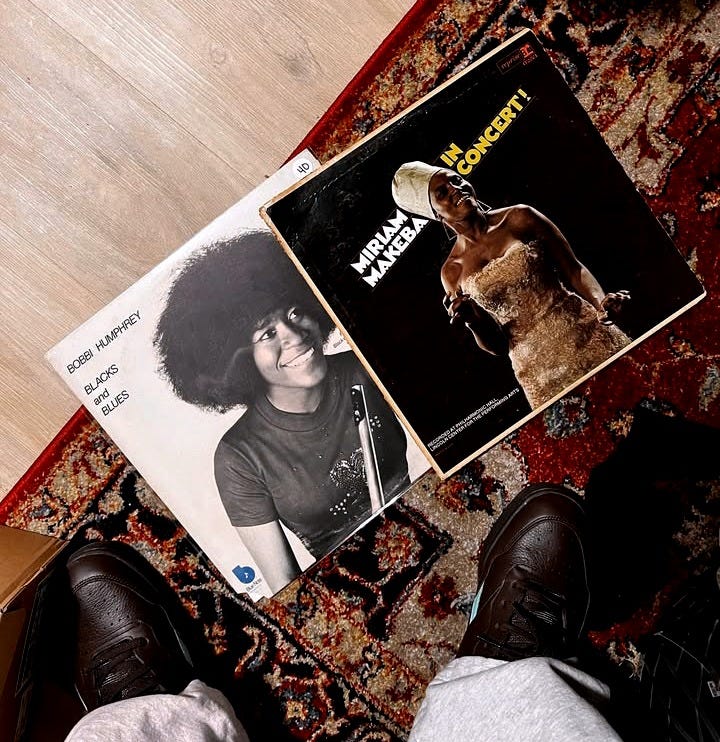


loved reading this! can’t wait for more
can’t wait for more of this series!